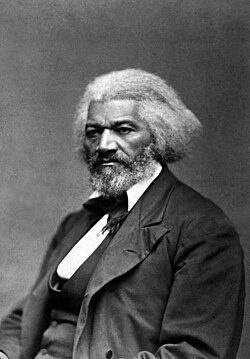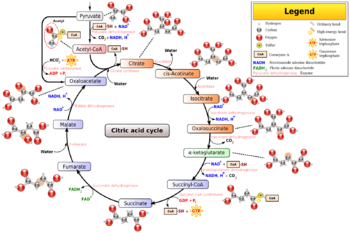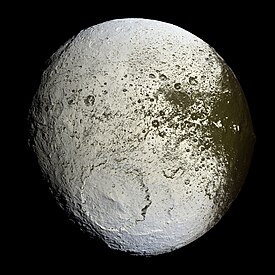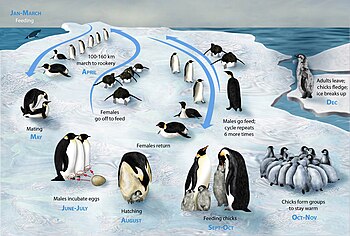|
Featured picture tools: |
These featured pictures, as scheduled below, appeared as the picture of the day (POTD) on the English Wikipedia's Main Page in February 2008. Individual sections for each day on this page can be linked to with the day number as the anchor name (e.g. [[Wikipedia:Picture of the day/February 2008#1]] for February 1).
You can add an automatically updating POTD template to your user page using {{Pic of the day}} (version with blurb) or {{POTD}} (version without blurb). For instructions on how to make custom POTD layouts, see Wikipedia:Picture of the day.
February 1

|
American abolitionist, editor, orator, author, statesman and reformer Frederick Douglass, shown here in 1879. Born a slave, Douglass was one of the most prominent figures in African American history and a formidable public presence. He was a firm believer in the equality of all people, whether black, female, American Indian, or recent immigrant. He was fond of saying, "I would unite with anybody to do right and with nobody to do wrong." February is Black History Month in the United States and Canada. Photo credit: George K. Warren
Recently featured:
|
February 2

|
A scene from W. S. Gilbert's 1870 musical farce The Princess, a parody of Tennyson's epic poem The Princess: A Medley, which was a tale of a prince cross-dressing in order to get access to a princess who shuns the world of men. In the play, the prince and his companions were portrayed by women pretending to be men pretending to be women. It later became the basis of the comic opera Princess Ida. Image credit: D. H. Friston, Illustrated London News
Recently featured:
|
February 3

|
Prisoners interned by the Nazis in Ebensee concentration camp, a subcamp of Mauthausen-Gusen in Ebensee, Austria, are liberated by the United States Army. The prisoners are malnourished, incredibly pale and show signs of abuse and mistreatment. The camp was reputedly used for medical experiments by Aribert Heim, known as "Doctor Death". Photo credit: Lt. A. E. Samuelson, United States Army
Recently featured:
|
February 4

|
Rosie the Riveter was a name applied to thousands of women who replaced men in the factories on the United States home front during World War II. Here, a metal lathe operator machines parts for transport planes at the Consolidated Aircraft Corporation plant, Fort Worth, Texas. Photo credit: Howard R. Hollem, OWI
Recently featured:
|
February 5

|
A dromedary or one-humped camel (Camelus dromedarius) in the Australian Outback. Estimated populations of Australian feral camels are in the hundreds of thousands, and this is now the world's only population of dromedaries exhibiting wild behaviour. Thousands of camels were imported into Australia between 1840 and 1907 to open up the arid areas of central and western Australia. They were used for riding, and as draught and pack animals for exploration and construction of rail and telegraph lines; they were also used to supply goods to remote mines and settlements. Their impact on the environment is not as bad as that of other introduced pests in Australia. They prefer to eat trees and plants that local wildlife dislike; only 2% of their diet is grass. Photo credit: John O'Neill
Recently featured:
|
February 6

|
A Two-lined Gum Treehopper (Eurymeloides bicincta), approx 10 mm (0.4 in) in length, on a eucalyptus branch, having its secretions consumed by a meat ant. This is one of at least 20,000 described species of leafhopper, a family of insects that is mainly plant-eating, but some species predate small insects such as aphids. Photo credit: Fir0002
Recently featured:
|
February 7

|
An iceberg floats in Baffin Bay, off the coast of Cape York, Greenland. The hole in the iceberg was caused by erosion by waves, wind and melting. Photo credit: Mila Zinkova
Recently featured:
|
February 8

|
United States 2008 Presidential candidate John Edwards campaigning in Pittsburgh, Pennsylvania on Labor Day in 2007, accepting the endorsement of the United Steelworkers and the United Mine Workers. Edwards withdrew from the presidential race at the end of January 2008. Photo credit: Mike Murphy
Recently featured:
|
February 9

|
Pancratium zeylanicum is a bulbous perennial herb. It grows in India and on the islands of the Indian Ocean where it is commonly known as “rain flower.” Photo credit: Muhammad Mahdi Karim
Recently featured:
|
February 10

|
The mushroom cloud caused by the detonation of the "Fat Man" bomb during the atomic bombing of Nagasaki, Japan in 1945, rising approximately 18 kilometres (11 mi) above the hypocenter. On the morning of August 9, 1945, the U.S. B-29 Superfortress Bockscar flew towards its primary target Kokura, but a 7/10 cloud cover had obscured the city, prohibiting the visual attack required by orders. They flew on to Nagasaki, which was likewise obscured. At 11:01, a last minute break in the clouds allowed the bomb to be dropped over Urakami Valley, which protected much of the city from the bomb's effects. Photo credit: United States Army
Recently featured:
|
February 11

|
A Humpback Whale breaching in the Stellwagen Bank National Marine Sanctuary. The purpose of breaching is unknown. It may be a form of communication, a method of stunning fish prey, or a way to remove parasites from the skin. In this behaviour, up to 90% of the animal's body clears the surface of the water, and a vertical speed of 29 km/h is reached. Photo credit: Whit Welles
Recently featured:
|
February 12

|
A photochrom print of the front of Neuschwanstein Castle, Bavaria, Germany taken as few as ten years after the completion of the castle's construction. The palace was built by Ludwig II of Bavaria as a retreat and as a homage to Richard Wagner, the King's inspiring muse. About 1.3 million people visit annually, making it one of Germany's most popular tourist attractions. Image credit: Detroit Publishing Co.
Recently featured:
|
February 13

|
A terrestrial subadult Eastern newt or red eft (Notophthalmus viridescens). Salamanders of the family Salamandridae with aquatic adult stages are called newts. Some newts, including the Eastern newt, have a juvenile terrestrial stage called the eft. The red eft has bright aposematic coloration to warn predators of its highly toxic skin. Photo credit: Patrick Coin
Recently featured:
|
February 14

|
Love or Duty, an 1871 chromolithograph by Gabriele Castagnola. The painting depicts a nun and an artist who have fallen in love, but the nun is torn between her heart and her duty to God. The image contains several symbolic suggestions. From her wrist, two charms can be seen: a human skull and a crucifix; the latter partially hidden in her sleeve. Meanwhile, the artist's cape has shifted slightly to reveal a dagger. Artist: Gabriele Castagnola
Recently featured:
|
February 15

|
Along with Charlie Chaplin and Harold Lloyd, Buster Keaton was one of the most important comic actors of the silent era. His trademark was physical comedy with a stoic, deadpan expression on his face, earning him the nickname "The Great Stone Face". He appeared in dozens of films, and his The General was voted the fifteenth-best film of all time by Sight & Sound readers. Entertainment Weekly also named him the seventh-greatest film director in history. Photo credit: Bain News Service
Recently featured:
|
February 16

|
In late 1882, the last of several major fires swept through the lower half of Kingston, Jamaica. In this engraving from the Illustrated London News, we see some of the destruction caused. Top row: Left, the view from the Royal Mail Steam-Ship Company's Wharf. Centre, Peter-lane, from Barry-street, looking south. Right, In Harbour Street. Second Row: Left, German Synagogue, Orange-street. Note the lack of roof. Right, Harbour-street from King-street. Third row: Left, Ruins from McDonald's Wharf, King-street. Centre, Portuguese Synagogue, from Princess-street. Right, Water-lane, from King-street. Note the advertisement for Christmas cards and toys. Bottom Row: Left, Princess-street, from Port Royal-street, looking north. Right, Peter-lane, from Town-street. Image credit: T. Sulman, Illustrated London News
Recently featured:
|
February 17

|
Plates 6 and 7 of the Edwin Smith Papyrus, the world's oldest surviving surgical document. Written in hieratic script in ancient Egypt around 1600 BC, the text describes anatomical observations and the examination, diagnosis, treatment, and prognosis of 48 types of medical problems. The document reveals the sophistication and practicality of ancient Egyptian medicine. Author: Credited to Imhotep and others
Recently featured:
|
February 18

|
A Long-Tongued Tachinid Fly (Senostoma species, approximately 12 mm (0.5 in) in length), feeding on nectar. This is one of the 240,000 known species of true flies, which are distinguished by a single pair of wings on the mesothorax and a pair of halteres, derived from the hind wings, on the metathorax. Photo credit: Fir0002
Recently featured:
|
February 19

|
The citric acid cycle is a series of enzyme-catalysed chemical reactions of central importance to all living cells that use aerobic respiration. In eukaryotes, the citric acid cycle occurs in the matrix of the mitochondrion. In conjunction with glycolysis and oxidative phosphorylation, it is responsible for the chemical conversion of carbohydrates, lipids and proteins into a usable form of energy, such as ATP, in a process that generates carbon dioxide and water as waste products. Image credit: YassineMrabet
Recently featured:
|
February 20

|
A portrait of David Suchet OBE, an English actor best known for his television portrayal of Agatha Christie's Hercule Poirot in the television series Agatha Christie's Poirot. For this role, he earned a 1991 British Academy Television Award (BAFTA) nomination. In preparation for the role he says that he read every novel and short story, and compiled an extensive file on Poirot. Photo credit: Phil Chambers
Recently featured:
|
February 21

|
The Common bluetail (Ischnura senegalensis) is a widespread damselfly of the family Coenagrionidae, native from Africa, through the Middle East, throughout southern and eastern Asia. It has been accidentally introduced to parts of Europe, including Great Britain and Finland. Photo credit: Laitche
Recently featured:
|
February 22

|
A bouncing ball captured with a stroboscopic flash. As the ball falls freely under the influence of gravity, it accelerates downward, its initial potential energy converting into kinetic energy. On impact with a hard surface the ball deforms, converting the kinetic energy into elastic potential energy. Each impact of the ball is a partially inelastic collision, meaning that energy is lost at each bounce. Photo credit: Michael Maggs
Recently featured:
|
February 23

|
An October 2002 eruption of Mount Etna, a volcano on the Italian island of Sicily, as seen from the International Space Station. Etna is the largest of Italy's three active volcanoes and one of the most active in the world. This eruption, one of Etna's most vigorous in years, was triggered by a series of earthquakes. Ashfall was reported as far away as Libya, 600 km (373 mi) to the south. Photo credit: Expedition 5 crew
Recently featured:
|
February 24

|
The T206 Honus Wagner is a rare baseball card depicting Honus Wagner (February 24, 1874 – December 6, 1955), a dead-ball era shortstop considered one of the best players of all time. The card was designed and issued by the American Tobacco Company from 1909 to 1911. Only 50 to 200 cards were ever distributed to the public, and as a result of the card's rarity and popularity, prices have soared. In 2007, a collector paid $2.8 million for one, making it the most valuable baseball card in history. This specimen belongs to the National Baseball Hall of Fame and Museum in Cooperstown, New York. Image credit: American Tobacco Company
Recently featured:
|
February 25

|
Close-up of the quadriga (four-horse chariot) on top of the Brandenburg Gate in Berlin (Germany) at night. The sculpture was produced by Johann Gottfried Schadow in 1793. The word quadriga may refer to the chariot alone, the four horses without it, or the combination. All modern quadrigas are based on the Horses of Saint Mark, a Roman or Greek sculpture which is the only surviving ancient quadriga. Photo credit: א (Aleph)
Recently featured:
|
February 26

|
The Vinland map is purportedly a 15th century mappa mundi, redrawn from a 13th century original. Drawn with black ink on animal skin, the map is the first known depiction of the North American coastline. The map has been controversial since it was first revealed in 1965, and both the most recent chemical analysis and the most recent scholarly monograph on the subject have suggested that it is a forgery. Credit: Author unknown; scan by Yale University
Recently featured:
|
February 27

|
The original US Brig Niagara, which played a pivotal role in defeating the British at the Battle of Lake Erie. It was sunk in 1820 for preservation but raised again in 1913 for the centennial anniversary of the battle (seen here). A modern replica based out of Erie, Pennsylvania now travels the Great Lakes as an educational and training vessel. Photo credit: Unknown
Recently featured:
|
February 28

|
False-color mosaic shows the entire hemisphere of Iapetus (1,468 km or 912 mi across) visible from the Cassini orbiter on the outbound leg of its encounter with the two-toned moon of Saturn in September 2007. The central longitude of the trailing hemisphere is 24 degrees to the left of the image's center. It is hypothesized that the moon's two-toned nature is due to the sublimation of various ices evaporated from the warmer parts of the surface. Photo credit: Cassini orbiter
Recently featured:
|
February 29

|
The life-cycle of the Emperor Penguin, the tallest and heaviest of all living penguin species. Adults spend nine months of the year breeding and caring for the egg and chick, during which they must trek across 90 km (56 mi) of ice and go without eating for up to four months. This cycle was depicted in the popular film March of the Penguins. Image credit: Zina Deretsky, NSF
Recently featured:
|
Picture of the day archives and future dates